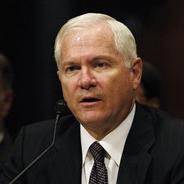When Secretary of Defense Robert Gates unveiled his first (and presumably last) National Defense Strategy (NDS) on July 31, he argued that the best single word to describe it would be "balance." Although the document is comprehensive and eclectic in its listing of possible security threats to the United States, its real function is to counterbalance what the secretary sees as the U.S. Defense Department's natural tendency to focus excessively on winning conventional conflicts rather than "irregular wars" such as those in Iraq and Afghanistan. The NDS also aims to promote a more balanced U.S. national security policy by bolstering the non-military elements of power at the disposal of American policy makers. Despite its short length of 23 pages, the NDS identifies a large range of possible U.S. security threats. The "spectrum of challenges" facing the United States, its allies, and its partners include "violent transnational extremist networks, hostile states armed with weapons of mass destruction, rising regional powers, emerging space and cyber threats, natural and pandemic disasters, and a growing competition for resources." Since these are primarily contemporary concerns, moreover, "The Department of Defense must respond to these challenges while anticipating and preparing for those of tomorrow," which include climate change, demographic trends, power shifts among countries, and "the unpredictable and complex interaction among the trends themselves." In terms of immediate dangers, however, the report clearly affirms Gates' concern with bolstering the military's capacity to wage "irregular" wars against non-state actors such as insurgents and terrorists. Since assuming office in late 2006, Gates has vocally warned against repeating the post-Vietnam experience of forgetting how to wage successful counterinsurgencies, which he considers a likely recurring phenomenon throughout the "long war" against violent extremists. The NDS states that "improving the U.S. Armed Forces' proficiency in irregular warfare is the Defense Department's top priority."
Defense Secretary Gates’ Counterpoise Strategy: Stressing Irregular Warfare

